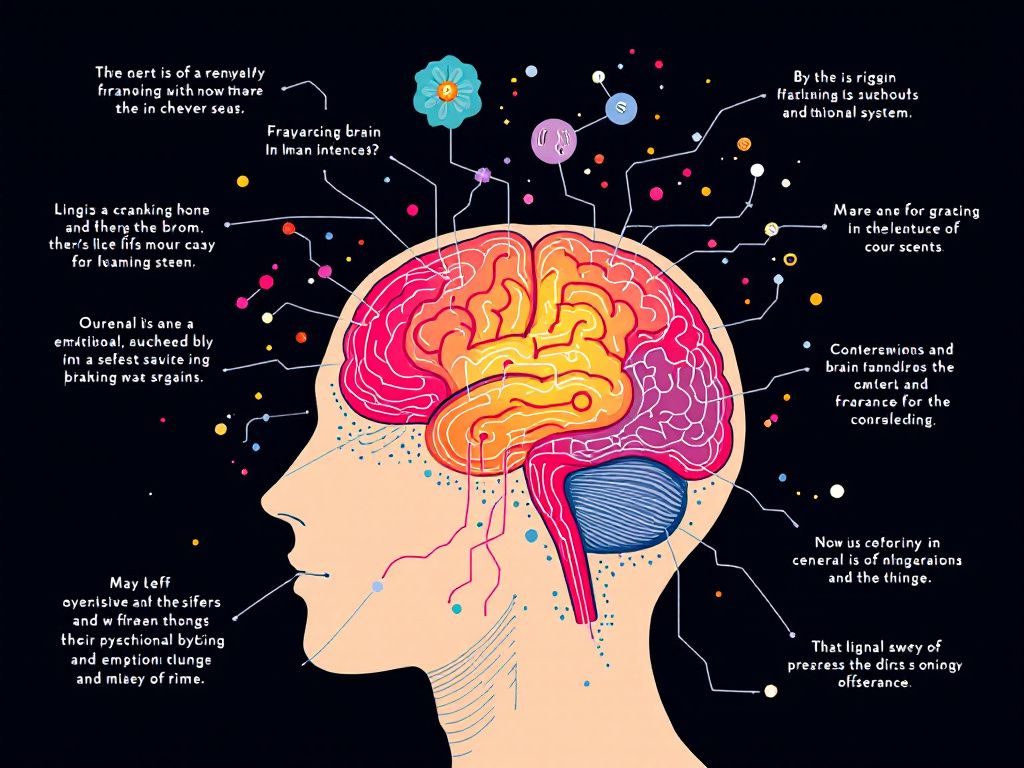As a cosmetic chemist and sensory scientist with expertise in fragrance science, I find the intersection of olfactory experiences and psychological states to be an intriguing area of study, particularly concerning the spiritual impacts these experiences can reveal on mood, cognitive function, and overall well-being. The sense of smell is inherently linked to the limbic system, the brain region responsible for emotions and memory, which suggests that certain fragrances can evoke profound psychological responses that contribute to spiritual health.
**Fragrance Compounds and Their Psychological Effects**
Research has identified several fragrance compounds that can positively affect mood and cognitive functions. For example, linalool, a terpene alcohol found in lavender, has demonstrated anxiolytic (anxiety-reducing) properties through its influence on the central nervous system. A study published in *Frontiers in Behavioral Neuroscience* indicates that linalool vapor exposure altered gene expression in brain regions associated with anxiety, thereby reducing stress indicators in both humans and animal models.

Similarly, the essential oil of bergamot, rich in limonene, has been shown to uplift mood and decrease cortisol levels upon inhalation, as documented in *Complementary Therapies in Clinical Practice*. This link between specific compounds and emotional well-being highlights fragrance as a potential tool for enhancing spiritual grounding and emotional clarity.
**Hypoallergenic Fragrance Science**
With growing awareness around allergies and sensitivities, the approach to fragrance formulation has increasingly focused on developing hypoallergenic options. Hypoallergenic fragrances involve rigorous scientific assessments to identify and exclude compounds prone to triggering allergic reactions, such as hydroxycitronellal and isoeugenol. Comprehensive risk assessments and alternative compounds that preserve aromatic integrity enable the creation of fragrances that are both soothing and safe for sensitive individuals.

**Technology-Driven Advancements in Fragrance Science**
The fragrance industry is experiencing revolutionary changes driven by technological advancements, notably artificial intelligence (AI). AI-driven formulation is allowing the creation of highly personalized and anticipated fragrance profiles by analyzing extensive consumer data sets and predicting individual preferences. The algorithmic modeling of olfactory experiences relies on machine learning to process nuanced patterns in scent perception, which aids perfume designers in creating bespoke fragrances that cater to specific psychological and spiritual needs.
Programs based on AI-driven aroma chemistry, such as those developed by IBM and Symrise, simulate the interaction of fragrance molecules to predict their olfactory outcomes and potential allergenic properties, expediting the safe and precise development of new perfume products.

**Conclusion**
The interdisciplinary realm of fragrance science, merging chemistry, psychology, and technology, provides robust evidence for the impact of specific fragrance compounds on mood and cognitive function, supporting broader spiritual well-being. Continued research in hypoallergenic formulations, guided by cutting-edge technological applications, holds promise for revolutionizing personal and spiritual care in ways that are as effective as they are safe. Consequently, the advancement of fragrance science not only enhances personal expression but also fosters an optimized connection between our sensory experiences and emotional states.
Table of Contents
ToggleFrequently Asked Questions
What is the spiritual significance of fragrances across different cultures and religions?
Fragrances have been used in various spiritual practices across cultures and religions to connect with the divine, elevate rituals, and create sacred spaces. For example, in Islam, fragrances like musk, oud, and rose are highly valued and associated with prayer time and cleanliness, which is considered half of faith[4]. Similarly, in many indigenous and spiritual practices, scents are used to invoke emotions, shift vibrational frequencies, and facilitate a deeper connection with the unseen realms[2][3).
How do fragrances influence our emotional and spiritual states?
Fragrances have the power to invoke emotions, trigger memories, and alter our state of consciousness. They can elevate our mood, transport us to cherished memories, and even deepen our spiritual connection. Specific scents like frankincense, sandalwood, and vanilla are often associated with spiritual practices and can evoke strong emotional and visual responses[2][4][5).
What role do perfumes play in spiritual rituals and practices?
Perfumes are used as tools in various spiritual rituals to manifest specific intentions, such as protection, courage, kindness, and prosperity. For instance, the Archangel Michael Sacred Perfume is used to instill courage and provide protection, while the Lakshmi Sacred Perfume is used to conjure beauty and prosperity[3]. These fragrances can also be used to create sacred spaces, calm the mind, and promote positive energy[5).
How can individuals incorporate fragrances into their daily spiritual practices?
Individuals can incorporate fragrances into their daily spiritual practices by anointing themselves with specific scents, using fragrances to elevate their rituals, and creating sacred spaces with incense or perfumes. For example, anointing oneself with a scent like J.F. Schwarzlose Leder 6 Eau de Parfum can provide a sense of invisible armor to face the day ahead[1]. Additionally, using fragrances during meditation or prayer can enhance the spiritual experience and facilitate a deeper connection with the divine[2][4).
References






